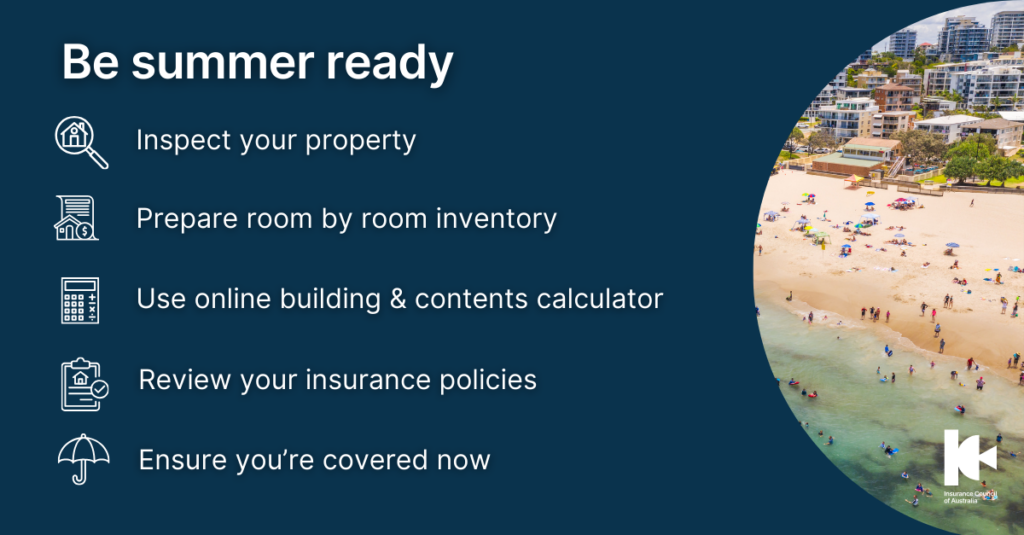Fire
Commonwealth insurance peaks collaborate on global insurance protection gap
Home Fire
Commonwealth insurance peaks collaborate on global insurance protection gap

News release
Monday 21 October 2024
The peak bodies representing personal and business insurers in the United Kingdom, Canada, Australia and New Zealand have called on Commonwealth leaders at this week’s Commonwealth Heads of Government Meeting (CHOGM) in Samoa to discuss worsening extreme weather and its impact on national economic and community resilience across the Commonwealth.
he Association of British Insurers (ABI), the Insurance Bureau of Canada (IBC), the Insurance Council of Australia (ICA), and the Insurance Council of New Zealand (ICNZ), have jointly written to the Prime Ministers of their respective nations calling for the issue to be put on the agenda as part of the Commonwealth Business Forum on 23 and 24 October.
This followed a Global Insurance Protection Gap Forum held in Sydney, Australia on Friday 18 October involving the four leaders of the ABI, IBC, ICA, and ICNZ, along with insurers, Australian government representatives, and regulators.
The four associations collectively represent insurers writing approximately US$200B in gross annual premium, with their members playing an essential role in enabling individuals, communities and businesses to recover from the unexpected and reduce risk across the economies in which they operate.
Operating in Commonwealth nations, the four organisations and their members face similar regulatory, political, and financial environments, with their governments and regulators having similar tools at their disposal to implement solutions.
The Global Insurance Protection Gap forum agreed that:
- As extreme weather intensifies, populations expand and more homes are put in harm’s way, the insurance protection gap will widen.
- Flood risk is often concentrated in particular areas, but the widespread nature of flood risk is going to increase.
- Governments and insurers have a critical opportunity to collaborate across global markets to build a shared view of current and future hazard risk.
- We must stop locking further risk into our economies by building homes in the wrong places.
- Applying excessive taxes and levies to insurance premiums can directly affect the affordability of insurance coverage.
Comment attributable to Hannah Gurga, Director General, Association of British Insurers
Our changing climate represents a real and growing threat to our resilience as a nation and globally. The UK led the way with the creation of Flood Re, which has helped keep insurance accessible for hundreds of thousands of homes. We are now at a crossroads, with a new government in post and a review of the planning system underway. It’s vital that decisions are taken for the long-term and made for the benefit of all. That's not just investing in flood defences but also changing where and how we build. Action is needed now, not in the future when the challenge will be ever greater.
Comment attributable to Celyeste Power, President and CEO, Insurance Bureau Canada
In the span of just five weeks this past summer, Canada saw five natural catastrophes: three major floods, a devastating wildfire, and a destructive hailstorm resulting in $7 billion of insured losses.
This isn’t an anomaly. It isn’t bad luck. It’s part of an escalating trend of severe weather events that is making Canada a riskier place to live, work and insure.
I know Canada is not facing these challenges alone and I join with my colleagues in Australia, New Zealand and Britain in our call for meaningful action to reduce the growing physical and financial risks our citizens are facing.
Comment attributable to Andrew Hall, CEO, Insurance Council of Australia
More frequent and intense disasters, coupled with ongoing development of areas at high risk of extreme weather and growing asset values, are widening the gap globally between those who can afford insurance in high-risk areas and those who can’t – often leaving society’s least wealthy unable to rebuild and recover when disaster strikes.
As the bodies representing personal and business insurance providers in the United Kingdom, Canada, Australia and New Zealand, we have a unique perspective on this issue.
Insurers remain steadfastly committed to the policies of derisking as the only sustainable way to reduce the pressure on premiums and close the protection gap: better planning so no more homes are built in harm’s way, stronger buildings that are better able to withstand extreme weather, greater investment in public infrastructure to better protect communities, and an ongoing program of home buybacks where no other mitigation is possible.
Comment attributable to Kris Faafoi, CEO, Insurance Council of New Zealand
Our nations share a common history and a future challenge with climate change. By working closely together our insurance representative bodies are committed to doing their bit to help reduce risk from natural hazards and protect our families and communities.
By reducing the protection gap we keep communities safe, reduce the costs to taxpayers and ratepayers and maintain insurance capacity and affordability.
Just last year New Zealand experienced just how devastating severe weather events can be on lives, livelihoods and communities. There is much to be gained by working together on these issues across the UK, Australia, Canada and New Zealand through policy work, relationships and our responses to natural disasters.
Insurers stand ready to work with their own Government’s and across jurisdictions to proactively protect the things we hold dear, our communities and our countries now and into the future.
Insurers welcome Parliamentary report into 2022 flood response
Home Fire
Insurers welcome Parliamentary report into 2022 flood response

News release
Friday 18 October 2024
The Insurance Council of Australia (ICA) today welcomed the the House of Representatives Standing Committee on Economics’ report following its inquiry into insurers’ responses to 2022 major floods claims.
The report provides 86 recommendations aimed at further improving the insurance industry’s response to natural disasters and enhancing consumer protections.
The ICA strongly supports those recommendations which would put downward pressure on premiums and help safeguard communities from future extreme weather events.
These include the removal of state insurance taxes, ongoing government investment in resilience and mitigation, and changes to planning arrangements to stop development on floodplains.
While they were small in proportion to the more than 300,000 flood claims received in 2022, the report includes too many examples of customers who did not receive appropriate service or even felt traumatised by their interactions with their insurer.
Insurers have apologised to those customers that were let down and have recommitted to ensuring service standards are improved through greater investment in people, tools and training.
The ICA commissioned its own report into the largest of the 2022 floods from Deloitte, and a follow-up progress report will be released by the end of this year.
The industry has already made progress towards many of the recommendations contained in the Committee’s report, including work on development of a potential standardised maintenance and a wear and tear clause, and better identification and handling of vulnerable customers.
Over the coming months, the ICA will review and engage with its members on the report’s recommendations, alongside the recommendations of the independent Review of the General Insurance Code of Practice.
The ICA and insurers are committed to continuing to work closely with Australian governments, stakeholders, consumer representatives, and regulators to implement changes that improve the industry’s response to customers impacted by extreme weather events.
Quote attributable to ICA CEO Andrew Hall:
The four flood events across 2022 were unprecedented and saw more than 305,000 claims and $7.7 billion in incurred losses, including $6.3 billion incurred from just one event.
Insurers acknowledge there were failures of systems, processes and resourcing in response to the extreme weather events that occurred during 2022, and the industry is already taking action to address these challenges.
The ICA and its members thank the Committee, particularly its Chair Dr Daniel Mulino MP, for their work inquiring into this important issue and we look forward to continuing to collaborate with the Government, Opposition and other stakeholders on the report’s recommendations.
Getting the balance right between good customer outcomes without putting further pressure on premiums will be key to successful implementation.
Don’t get caught short. Be summer ready.
by insuranceca
Home Fire
Don't get caught short. Be summer ready.

News release
Monday 14 October 2024
With summer fast approaching, the Insurance Council of Australia (ICA) is urging homeowners and tenants to prepare for the upcoming storm and bushfire season.
Extreme weather can strike at any time, however insurers see a greater number of events between October and April. Since 2013, 78 per cent of all declared insurance catastrophes have taken place between October and April and 90 per cent of catastrophe-related losses have been incurred in those months.
The Bureau of Meterology is already predicting increased risk this summer, with higher fire risk predicted for parts of Vicrtoria South Australia because of the lower than average rainfall through winter, greater risk of storm and flash flooding across large parts of Australia's east coast, and above average risk of severe cyclones in the north because of warmer sea temperatures.
Before extreme weather season arrives, there are practical actions that all householders can take to prepare for and reduce the risk of extreme weather. These include:
- Inspect your property and take practical steps to reduce risk such as cleaning gutters, keeping lawns and gardens maintained and cleaning up green waste items around the property. Take the advice of relevant agencies in your area when preparing your home for summer weather conditions.
- Prepare a room-by-room inventory of the contents of your home. This list helps determine if your assets are adequately protected and can save time when making a claim.
- Use an online building and contents calculator to ensure your insurance cover adequately covers estimated costs to repair, rebuild or replace home and contents, vehicles and any outbuildings on your property in event of a disaster.
- Review all building, contents, and landlord insurance policies. Make sure you understand what cover you have, as well as any exclusions or limits that may be part of your insurance policy. It is important to be aware of these exclusions and to query your insurer about any part of a policy you do not understand.
- Ensure you are covered now before extreme weather threats are heightened, as some insurers may place a temporary embargo on the purchase of new policies if extreme weather is imminent.
Quotes attributable to ICA CEO Andrew Hall:
We’ve already seen an early start to storm season, with flooding in parts of Victoria and Tasmania last month and storms in south-east Queensland last week.
Storm season is unpredictable and in Australia extreme weather can strike any place and at any time. That’s why it’s vital to be prepared and ensure your insurance cover is up-to-date.
The costs of home repairs and rebuilding hs risen by 27 per cent since 2020, making it vital that property owners know that their sum insured is adequate.
We also recommend consulting your local state emergency service for safety tips, and to keep informed via resources available from fire and emergency services agencies.

Insurance Catastrophe Resilience Report 2023-24
by insuranceca
Home Fire
The ICA’s second annual Insurance Catastrophe Resilience Report uses insurer data and insights to review the last 12 months of extreme weather events and advocate for changes to reduce the impact of future events.
Buying insurance before an event
Home Fire
When to buy insurance

Buying a policy before an event
Some types of insurance may benefit you if they are bought in advance, such as travel insurance. Travel insurance may be purchased as soon as the deposit for the trip is paid. It usually does not cost any more to purchase the cover at this time, and the cancellation cover can start straight away.
Embargoes
Insurers often place embargoes on insurance policies to prevent people buying insurance when the risks are elevated or a disaster is approaching and then cancelling cover after the risk passes.
Embargoes on insurance are a normal and accepted practice, and usually apply to new policies. They take effect when events such as fires, floods and cyclones are impacting or considered likely to impact an area.
If an insured risk is imminent, the probability of that risk occurring and therefore a claim being lodged is high. Insurers would need to calculate a premium that reflects this elevated risk, rather than averaging the risk over an entire year.
However, not all insurers impose embargoes. Australia’s insurance market is large and highly competitive, and at any one time there are usually insurers who have not enacted an embargo, and property owners may be able to find cover.
- Page 1
- Page 2
- Page 3
- Interim pages omitted …
- Page 7
- Go to Next Page »


